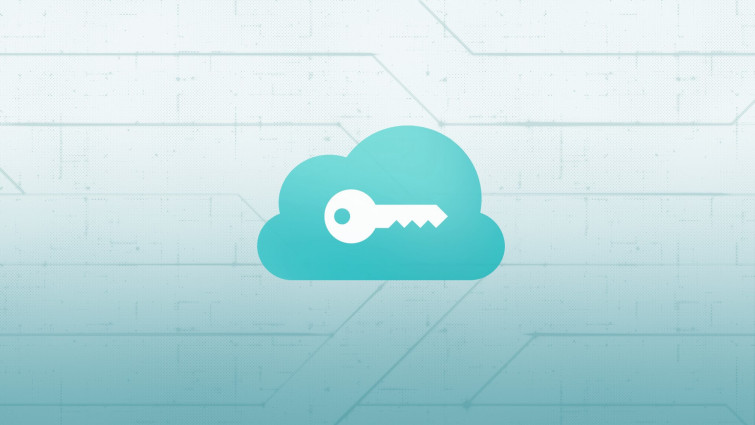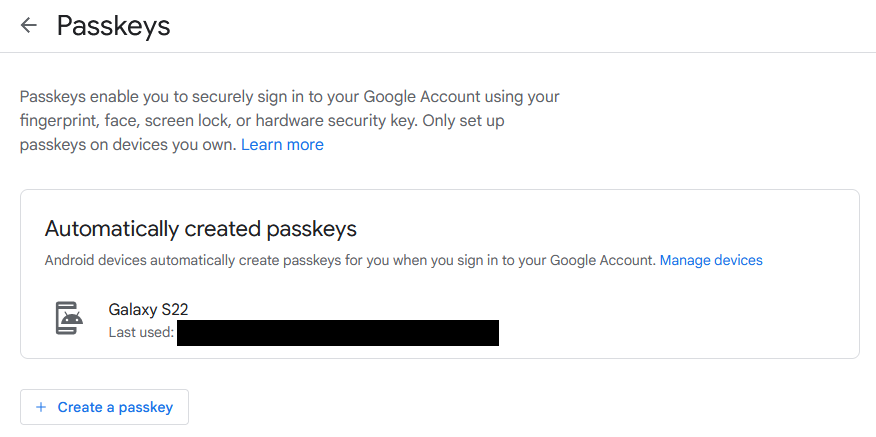Digital Safety
With passkeys poised for prime time, passwords appear passé. What are the primary advantages of ditching one in favor of the opposite?
20 Jun 2023
•
,
5 min. learn

Chances are high good that many people have had sufficient of passwords. In a world the place we now have to handle entry for scores of online accountspasswords now not appear match for objective. Many people reuse the same, easy-to-remember login credentials throughout these apps and web sites and commit other password-related mistakeswhich makes it simpler for these with malicious intent to guess or steal our login details. And as soon as one password is cracked, our total digital world might come crashing down.
It’s really one way or the other exceptional that passwords have lasted so lengthy, with the rationale largely boiling all the way down to a scarcity of efficient options. However this can be about to alter with the emergence of passkeys. Google recently announced support for the brand new know-how on each private and work accounts (not unlike Apple and Microsoft), so might a brand new period of passwordless logins be simply across the nook?
Earlier makes an attempt to boost or replace the password expertise and safety have solely had partial success. Two-factor authentication (2FA) does considerably assist make passwords safer, however its uptake has been removed from common as some individuals discover the two-step course of unwieldy. Additionally, one-time codes despatched to customers by way of textual content messages, which is by far probably the most generally used number of 2FA, can nonetheless be intercepted.
Password managersfor his or her half, do an incredible job of producing, storing and recalling a protracted, advanced and distinctive password for every particular person website. However they could not all the time cowl all of your gadgets, working techniques and internet browsers and should current a single level of failure must you misplace your grasp password. In some circumstances, the person expertise can be a bit of clunky, too.
Enter passkeys, an {industry} customary that the most important names in tech hope will someday change passwords, 2FA and the necessity for password administration as we all know it.
How do passkeys work?
Passkeys harness the ability of public key cryptography. A passkey consists of a pair of cryptographic keys – a non-public one and a corresponding public one – that’s generated to safe your account on a web site, app or one other on-line service.
The non-public secret is saved in your gadget as a protracted string of encrypted characters whereas the matching public secret is uploaded to the servers of the corresponding on-line service, for instance Google and even Apple’s iCloud keychain password administration system.

In the event you’re signed into your Google account out of your smartphone, Google may have already generated a passkey for you
Then, if you try to log in, you’ll be requested to authenticate together with your PIN, fingerprint or one other gadget screen-lock mechanism. There’s no have to enter or bear in mind any passwords, which instantly makes the method safer and extra seamless to make use of.
On the login try, the server sends a cryptographic challenge to your deviceasking the non-public key to unravel it and relay it again to the server. This response is used to confirm that the private and non-private key pairs match as each are required to authenticate you.
At no level does the biometric knowledge depart the gadget, nor does the server be taught what the non-public secret is. Certainly, you by no means really see the non-public key your self, both – all of the magic occurs within the background and with subsequent to zero effort in your half.
What are the advantages of passkeys?
So, might passkeys supply the ‘Holy Grail’ of each ease of use and stronger safety? Listed below are a few of the advantages in additional element:
- Phishing- and social engineering-resistant: Passkeys put off the issue of individuals unintentionally spilling their login credentials to cybercriminals by getting into them into phoney web sites. As an alternative, you’re requested to make use of your gadget to show that you’re the account’s true proprietor.
- Stop fallout from a third-party breach: If a web site or app supplier is breached, solely public keys could possibly be stolen – your non-public secret is by no means shared with the web service, and there’s no technique to determine it out from the general public key. By itself, then, the general public secret is ineffective to an attacker. Evaluate this to the present system, the place hackers can steal giant troves of ready-to-use username/password combos.
- Keep away from brute-force assaults: Passkeys depend on public key cryptography, that means attackers can’t guess them or use brute-force strategies to crack accounts open.
- No 2FA interception: There’s no second issue with passkeys, so customers aren’t prone to assault strategies designed to intercept SMS codes and the like. Certainly, consider a passkey itself as consisting of a number of authentication components. In actual fact, passkeys are strong enough to replace even probably the most safe taste of 2FA – {hardware} safety keys.
- Constructed on {industry} requirements: Passkeys are based mostly on FIDO Alliance and W3C WebAuthn working group requirements, that means they need to work throughout all collaborating working techniques, browsers, web sites, apps and cell ecosystems. Apple, Google and Microsoft are all supporting the know-how, as are (or will quickly be) main password administration corporations resembling 1Password and Dashlane and platforms like WordPress, PayPal, eBay and Shopify.
- Simple to get better: Passkeys could be saved within the cloud and thus restored to a brand new gadget whether it is misplaced.
- Nothing to recollect: For customers, there’s now not a have to create, bear in mind and defend giant volumes of passwords.
- Works throughout a number of gadgets: As soon as created, a passkey can be utilized on new gadgets with out the necessity to re-enrol every time as per common biometric authentication. Nevertheless, there are caveats, as detailed under.
Why may passkeys not be a good suggestion?
There could also be some hurdles alongside the way in which that will in the end cease you from adopting passkeys, in the interim, anyway: {industry} adoption and the way in which passkeys sync.
- Passkeys solely sync to gadgets operating the identical OS: As this article explains, passkeys sync by OS platform. Meaning you probably have an iOS gadget but in addition use Home windows, for instance, it might make for a irritating person expertise. You would want to scan QR codes and change on Bluetooth to get your passkeys working throughout gadgets utilizing completely different working techniques. That’s really much less user-friendly than the present expertise for passwords.
- Adoption is way from industry-wide: Though some huge names are already on board with passkeys, it’s nonetheless early days. Apart from the massive platforms, it should additionally take a while earlier than we attain a crucial mass of internet sites and apps supporting it. Try whether or not your favourite platforms help the know-how here.
Might this be the start of the top for passwords? Passkeys are the strongest contender but. However to realize near-universal acceptance amongst customers, the tech distributors could have to make it simpler nonetheless to make use of them throughout completely different OS ecosystems.
In the event you’re prepared to offer passkeys a strive, it takes little or no effort to get began by way of the settings menu of your Google, Apple or Microsoft account(s).
Author:
Date: 2023-06-20 07:30:40



